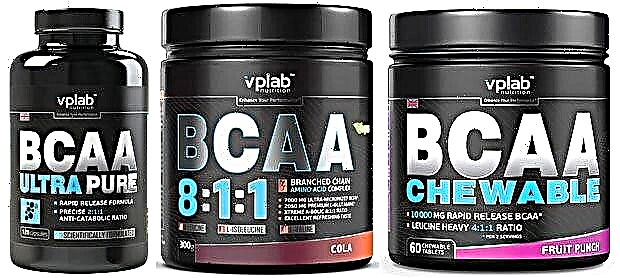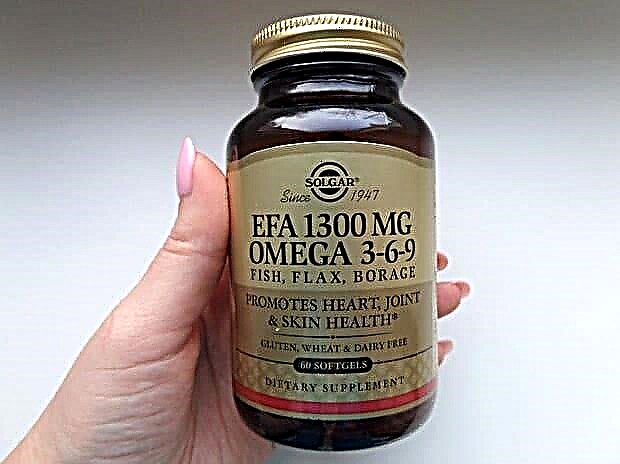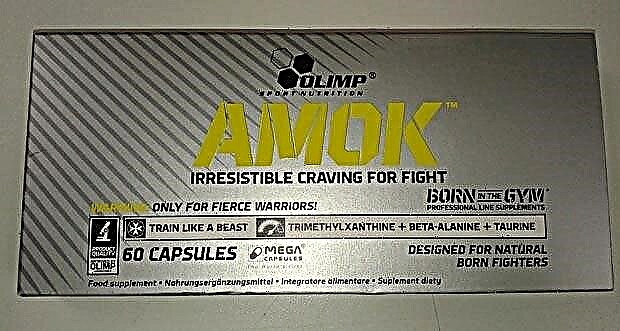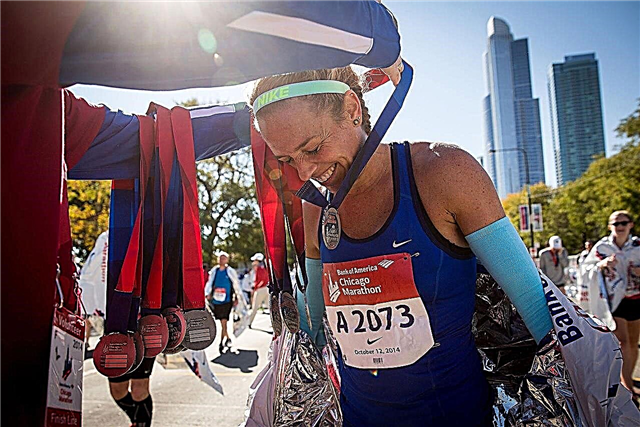Post-workout recovery is an essential part of any exercise cycle. This stage cannot be neglected, otherwise the classes will be in vain. Muscles and body must rest, only in this case they will be fully prepared for new exploits. Even if you don't feel tired, there are still a lot of different processes going on in your body during the recovery period. If you constantly exclude them from the chain, sooner or later the body will react with a powerful malfunction, which will result in a drop in immunity, stress or, banally, lack of progress.
Why is recovery so important?
Before we start learning how to properly recover from a workout, let's take a closer look at this issue.
Our body exists according to the principle of homeostasis. Let us recall from biology that this is such a super-state in which all vital processes proceed in a friendly symbiosis. As a result, a balance is observed - a person feels healthy and vigorous.
What Happens During Training? Absolutely all systems start to work for wear. Some are stronger, others are weaker. Homeostasis is disturbed, but not for long. The body turns to the reserve - glycogen in the liver, trace elements in the blood, and also announces the emergency mode to the hormonal and metabolic systems. The latter begin to work at increased speeds. A lot of strength and energy is spent. Muscles are actively working - micro-damage to the fibers is formed, which will begin to be "repaired" immediately after training.
When the lesson ends, recovery begins - the period of replenishment of the resources spent from the reserve. Gradually, the biochemical, anatomical and physiological state of the athlete is normalized.
Right now, when strength training is completed, muscle growth or weight loss begins. While recovering, the muscles become more elastic, stronger, and in the process of fiber healing, the muscles increase in volume.
So, let's summarize what the post-workout recovery period does?
- Return of systems to homeostasis;
- Increased adaptability to future loads;
- Muscle growth;
- Burning subcutaneous fat;
- Recovery of wasted energy reserves.

Recovery stages
Many people are interested in how long it takes for muscles to recover after exercise. In order to clearly explain the answer, you need to disassemble the stages of recovery.
First, let's clarify: the duration of the process is individual for each person. Depends on his physical fitness, metabolic rate, training intensity. On average, the period lasts 2-4 days.
So, into what stages the restoration is divided:
- Fast. Comes immediately after class and ends in 30-40 minutes. At this moment, the body is in extreme stress, in its most acute phase. It quickly consumes the last reserves of energy, minerals, and protein. If you are wondering how to speed up muscle recovery after training, you should drink special sports drinks based on proteins (protein) and glucose (carbohydrates) at this point. Mineral water without gas will help restore the balance of liquid and salt. And in general, do not forget to drink water after finishing your workout. Unless of course you want health problems.
- Postponed. It starts when the body replenishes the initial deficiency of substances, about an hour after training. Active restoration of damaged muscle fibers begins, subcutaneous fat is burned, blood pressure and heart rate are normalized, the nervous system calms down. Active protein synthesis occurs. The period lasts 2-3 days and at this stage it is important to eat more foods for muscle recovery after training. There should be a sufficient amount of protein in the diet. The daily rate is 30 g per 1 kg of body weight.

- "In reserve" or supercompensation. This stage begins at the same time as the previous one, reaching its peak on the 3rd day after training. During this phase, the body tries to provide itself with resources "in reserve". It stores energy and synthesizes protein with crazy activity. Thus, the body prepares for the next spurt without even being completely sure whether it will come. Right now, the most active period of muscle growth is underway, and the body is as ready as possible for future progress. This is the best time for the next lesson. The ability to "get" into the supercompensation phase in bodybuilding is considered "aerobatics" and one hundred percent guarantee of the result.
- Rollback. This stage begins after supercompensation - on days 4-5. The body rolls back to the state prior to the previous training session. Normally, if you plan on exercising regularly to achieve your athletic goal, you shouldn't push your body into a rolling state. In essence, this is a step back. You cross out the works of the last training, returning to the form before the sport. A beginner will reset progress in just 2-3 passes, and an experienced athlete in 1-1.5 months.

Subtleties and nuances of recovery
- Surely you will ask the question whether it is possible to exercise if the muscles, according to the sensations, have not fully recovered. Let's say you have an anticipated supercompensation phase and are ready to come to the gym. But the body still hurts and you are unlikely to be able to work at full strength. Do not worry, all tables with muscle recovery time after training say that you can work out for 3-4 days. However, in case of severe pain, it is allowed to work at a lower intensity. Don't use overly injured muscles. For example, if your legs hurt, train your upper left girdle.
- Many are also interested in how to understand that the muscles have fully recovered after training. Your body will help you answer. Listen to your feelings. Analyze the emotional background. If you feel a general "cheerfulness", but in some places the muscles react with slight soreness - feel free to step into the hall. But when, against the background of pain, there is also weakness, fatigue, depression - it is better to wait a day.
- A quick recovery from a workout in the gym is not available to every athlete. The duration of the period depends on its preparedness, as well as on the individual metabolic rate. The level of complexity of the previous training also matters. Well, and an important factor is the athlete's compliance with general recommendations for accelerating recovery.

How to recover?
We've come to the main part of our article - we'll talk about how to quickly restore muscles after training.
- The most important factor is normal sleep. The minimum duration of an uninterrupted night's rest is 8 hours. It is advisable to observe the regime - to get up and go to bed at the same time. Do not fit right after a workout or with a full stomach. Wait until dinner and protein shakes are digested, allow your body to cool down and go to bed at least a couple of hours after training. Provide a comfortable environment - climate, mattress, linen, clothing, posture.
- Don't forget about the hitch. Don't be surprised why your muscles take a long time to recover after a workout that was completed incorrectly. Cooling down allows you to smoothly prepare the body from active work to rest. It lasts only 5-10 minutes, but manages to rebuild the body for the next stage. It helps to reduce soreness in the muscles, calms the pulse, relaxes and tune in to positive emotions.

- Massage. We have repeatedly written how muscles are restored after training and constantly mentioned the healing properties of massage. If you have a jacuzzi - arrange yourself a hydrotherapy. You can also knead a tired body with your hands or using special rollers, rollers, applicators.

- Warming up is good for recovery. Soak in a hot bath immediately after your workout, and the next day you can go to the steam bath or sauna.
- Of course, the answer to the question "how to recover from a hard workout" is also hidden behind careful meal planning. It is not enough to say that it should be as thoughtful as possible in terms of the KBZhU balance. The athlete should consume a lot of protein and complex carbohydrates. The former are involved in muscle recovery, while the latter synthesize energy.
If you're wondering how to quickly recover from a workout in the gym, your daily menu should look something like this:
- Breakfast - sports nutrition enriched with proteins, in half an hour - complex carbohydrates;
- Snack - fruits, cottage cheese, natural yogurt, 5-6 nuts (your choice);
- Lunch - boiled meat, vegetables, cereals, eggs;
- An hour before training - amino acids from the sports diet;
- During the lesson - VSSA complex, water, isotonic;
- After training for half an hour - gainer and / or protein shake, banana;
- Dinner - a low-fat diet, rich, mainly in protein, quickly digested;
- Before bed - milk, kefir, proteins from supplements.

What to drink to speed up recovery?
If you are wondering what you can drink to help your muscles recover after exercise, we advise you to pay attention to the following substances:
- Pure filtered water. You need to drink at least 30 ml per 1 kg of weight per day;
- Pay attention to vitamins for muscle recovery after exercise - look for complexes rich in vitamins B, C, E, zinc, magnesium, iron. You can buy a ready-made vitamin and mineral complex for athletes at a sports nutrition store. All dosages are calculated in advance in the quantities required by the body.
- Recommended sports nutrition for post-workout recovery includes gainers, protein and casein shakes, BCCA complexes, and full cycle amino acids.
- Sooner or later, every "jock" thinks about buying special drugs that accelerate muscle recovery after training. They are sold in the same stores of sports nutrition and dietary supplements. The question of whether to accept or not, everyone decides individually, but we would like to focus on the following. Yes, pills and injections can actually speed up muscle growth and reduce soreness. Your recovery period will run at an insane rate. However, all this is extremely unhealthy. Think about why you visit the gym? Is it just to achieve a spectacular appearance, or to become stronger and healthier? Based on this answer, you will know if you need stimulant drugs.

So, we have studied in detail the topic of recovery and rest. We hope that now you understand the importance of this stage and will follow our recommendations. Remember, an athlete who knows how to properly restore muscles after training is guaranteed to reduce pain and accelerate the onset of the desired homeostasis. By the way, the key to excellent recovery is also a good mood, fighting spirit and an unshakable desire to achieve the goal.









